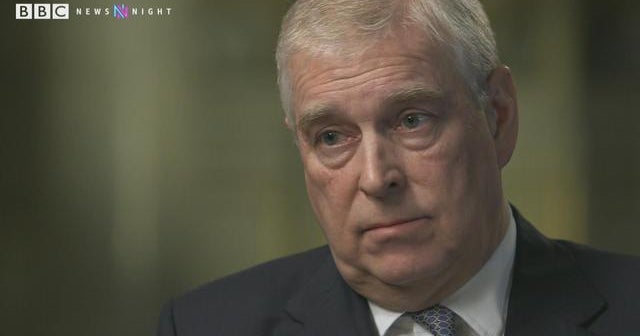Prince Andrew Reflects on Controversial Ties to Epstein: A Regretful Decision
In a revealing confession that has sent ripples through British society, Prince Andrew, Duke of York, has publicly acknowledged his regret over maintaining a friendship with the late financier Jeffrey Epstein during visits to New York City. This admission not only sheds light on Andrew’s controversial associations but also raises pressing questions about accountability within elite circles.
Acknowledgment of Past Mistakes
During a recent interview, Prince Andrew candidly expressed remorse for his decision to associate with Epstein, who was a convicted sex offender. He stated, “Looking back, I now realize that it was a regrettable decision to remain in contact with him. At the time, I did not fully comprehend the implications of my actions.” This statement marks a stark contrast to his previous denials and has sparked discussions about the responsibilities of individuals in positions of power.
Contextualizing the Relationship
Prince Andrew’s relationship with Epstein has long been a subject of scrutiny, particularly in light of allegations surrounding Epstein’s trafficking of underage girls. The Duke’s connections to Epstein have drawn criticism not only for their moral implications but also for the potential impact on the royal family’s reputation. In the wake of Epstein’s death and subsequent investigations, Andrew’s public image has suffered significantly, leading to his withdrawal from royal duties.
The Broader Implications of Accountability
The fallout from Prince Andrew’s associations extends beyond personal regret; it reflects broader societal issues surrounding privilege and accountability. The elite often operate within insulated bubbles, seemingly above the law, which raises questions about the justice system’s ability to address the actions of those in power. Andrew’s admission serves as a reminder of the need for transparency and accountability in all levels of society.
Public Reactions and Responses
The public reaction to Prince Andrew’s admission has been mixed. While some applaud his honesty, others remain skeptical, questioning the timing and sincerity of his remorse. Social media platforms have been flooded with comments, with many users expressing that this acknowledgment feels insufficient in light of the gravity of the allegations against Epstein and his associates. Others argue that this could mark the beginning of a more candid dialogue about accountability among the elite.
Looking Forward: A Call for Change
As the conversation surrounding Prince Andrew continues, it is imperative to consider what this means for the future of royal accountability. Will this admission lead to more significant changes within the royal family or inspire other high-profile individuals to reflect on their own associations? The need for systemic change in how society perceives and addresses issues of power and privilege has never been more evident.
Conclusion
Prince Andrew’s reflection on his ties to Epstein has opened a crucial dialogue about the responsibilities that come with privilege. His admission of regret serves as a poignant reminder of the importance of accountability in elite circles. As discussions continue, the hope remains that this moment will catalyze meaningful change and encourage a culture of transparency and responsibility among those in positions of power.
- Key Takeaways:
- Prince Andrew admits regret over ties to Jeffrey Epstein.
- The admission raises questions about accountability among elites.
- Public reaction is divided, highlighting societal skepticism.
- The conversation may lead to calls for systemic change in accountability.
See more The Buzz Live

